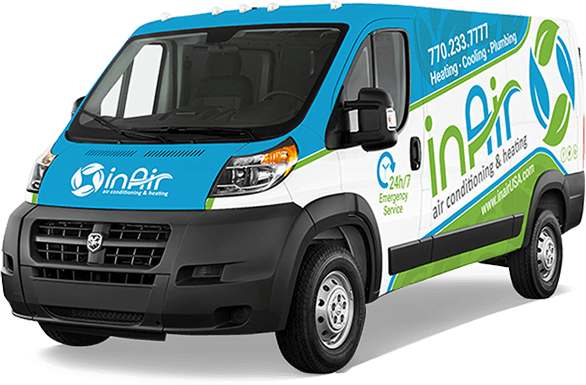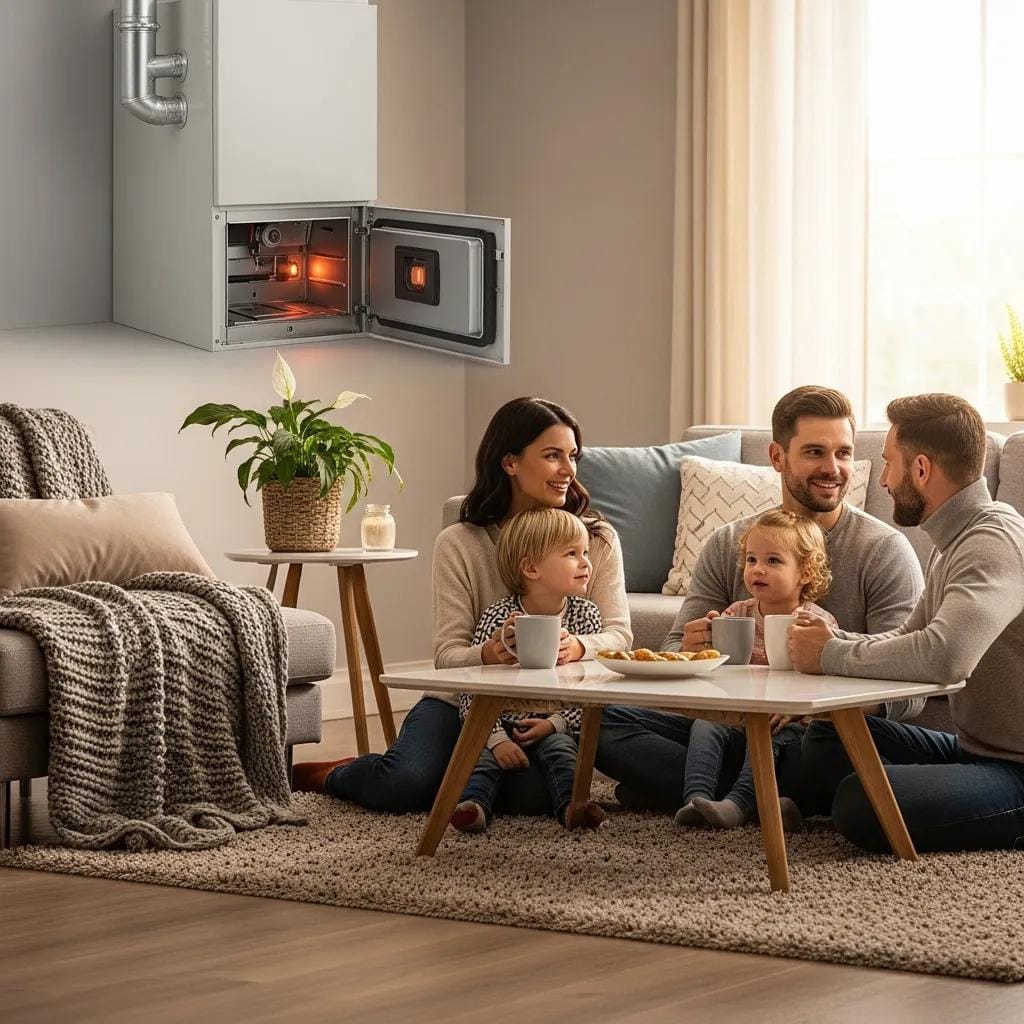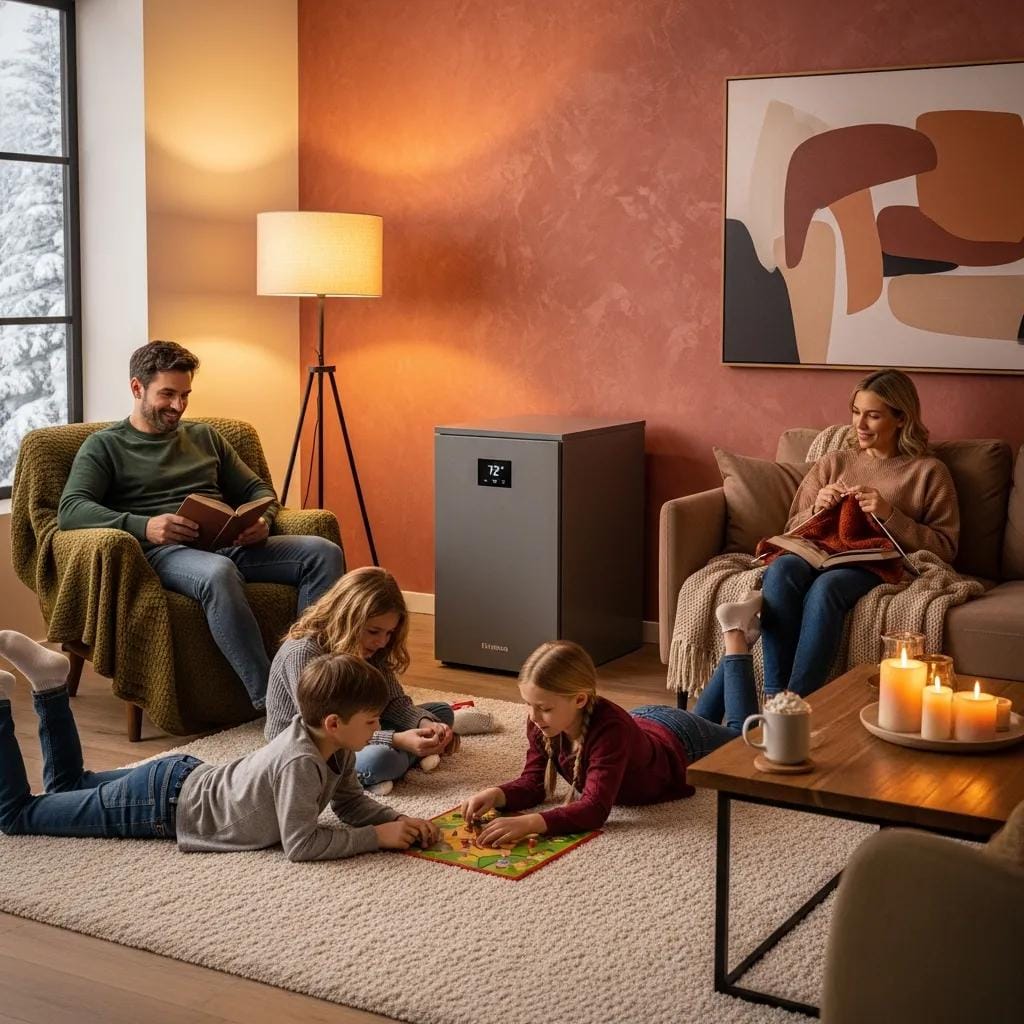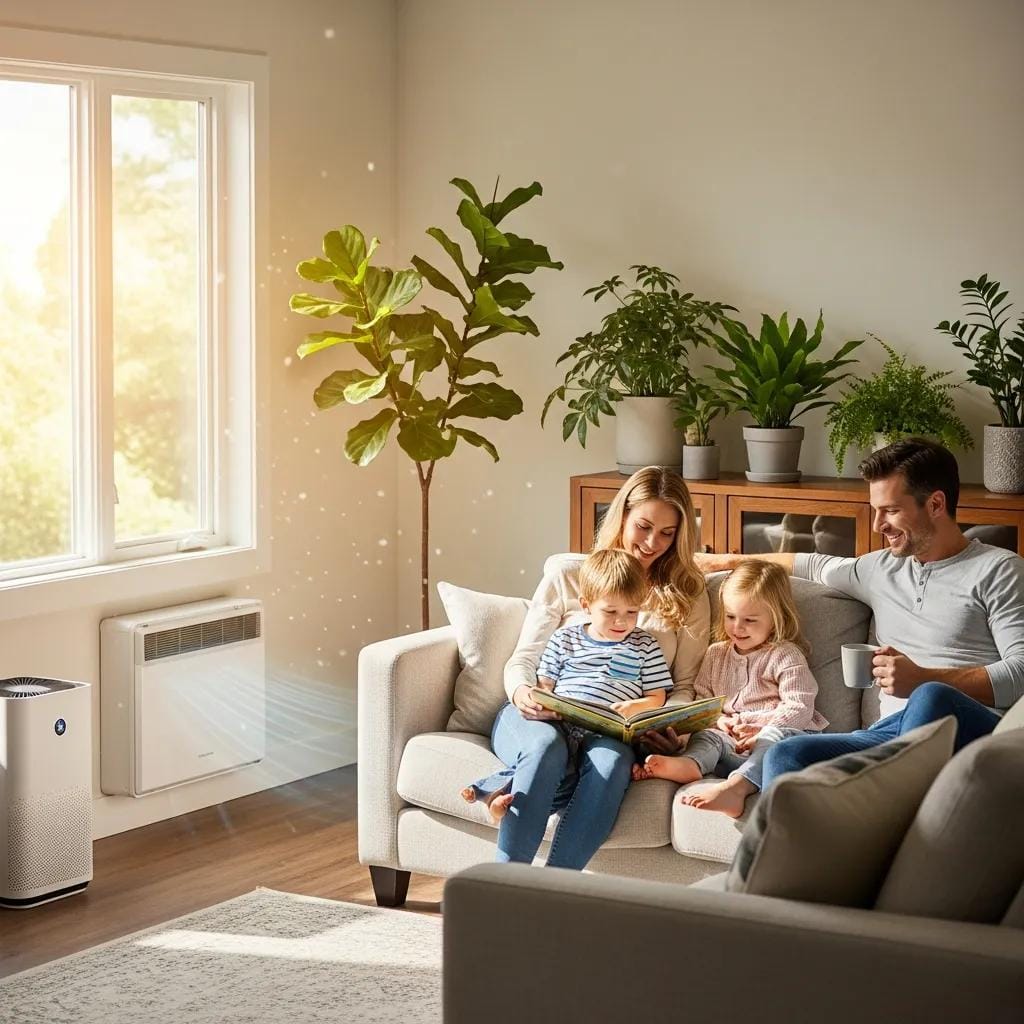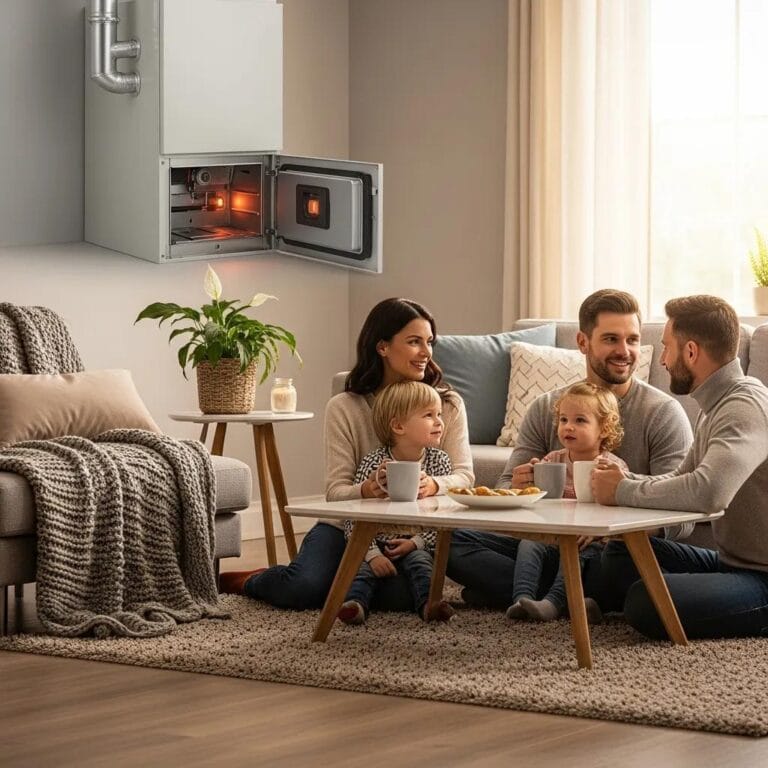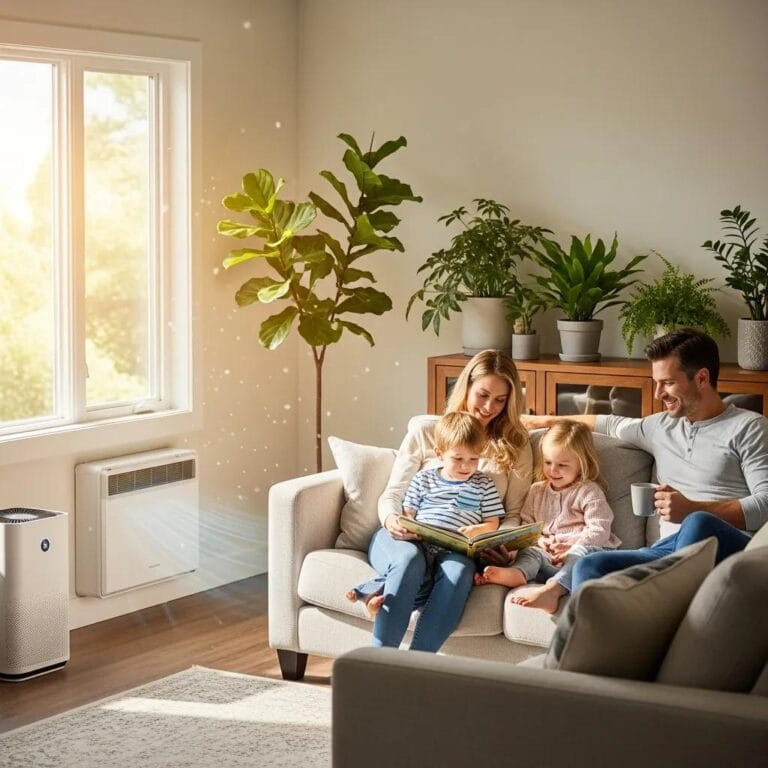Seasonal HVAC maintenance isn’t just a good habit—it’s a smart investment in your home’s comfort and your wallet. By scheduling routine checkups in the spring and fall, you catch minor issues before they become costly repairs and ensure your system runs at peak efficiency year-round. Regular maintenance helps reduce energy consumption, lowers utility bills, and extends the life of your equipment. Even better, it minimizes the chances of inconvenient breakdowns during extreme weather, when you rely on your HVAC system the most. In this guide, we’ll break down how a proactive approach to maintenance pays off in both savings and peace of mind.
Why Seasonal HVAC Maintenance Is More Important Than You Think
Why Is Seasonal HVAC Maintenance Essential for Homeowners?
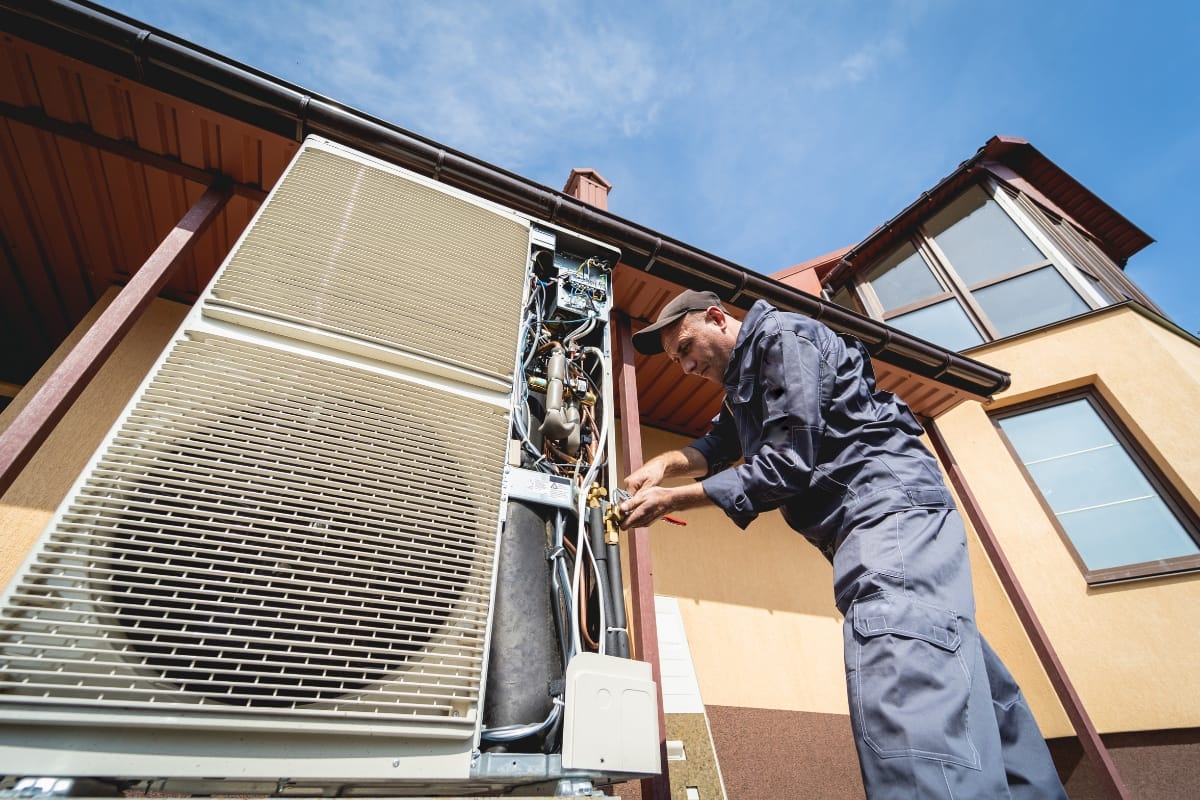
Maintaining your HVAC system throughout the year is one of the most effective ways to keep it running smoothly and efficiently. Seasonal check-ups help catch small issues before they turn into bigger, more expensive problems. They also help ensure that your system isn’t working harder than it needs to, which can lead to lower energy bills and a longer lifespan for your equipment. Regular maintenance also plays a big role in keeping your home’s air clean and healthy.
How Does Regular Maintenance Prevent HVAC Breakdowns?
Many HVAC issues start small and go unnoticed until they cause the system to fail. Regular maintenance helps spot these early signs. Technicians check parts like the compressor, fan motors, and electrical connections for wear and tear. Refrigerant levels are also inspected to prevent strain on the compressor, which is one of the most costly components to replace.
Worn-out belts, loose wires, or debris clogging up the unit can all cause strain over time, increasing the risk of a breakdown. Simple steps like clearing debris, tightening components, and cleaning ducts can prevent these issues from getting worse. The goal is to keep the system operating efficiently so it doesn’t fail when you need it most—especially during extreme weather.
What Are the Financial Benefits of Seasonal HVAC Tune-Ups?
There’s a clear connection between regular maintenance and saving money. Systems that are routinely serviced don’t have to work as hard to heat or cool your home. This improved efficiency translates to lower monthly energy bills. Seasonal tune-ups also help reduce the risk of major repairs down the line, which can be expensive and disruptive.
In many cases, tuning up your system in the spring and fall can reduce energy consumption by as much as 10 to 15 percent. And if your unit is still under warranty, skipping maintenance could void that coverage. Keeping up with service requirements helps protect the investment you’ve made in your HVAC system and avoids unnecessary out-of-pocket costs.
How Does Maintenance Improve Indoor Air Quality?
The air inside your home passes through your HVAC system multiple times a day. If filters are clogged or ducts are dirty, dust, pollen, and other particles can build up and circulate throughout your living space. This can cause or worsen allergies and other respiratory problems.
Seasonal maintenance includes replacing or cleaning filters, inspecting ductwork, and checking for any signs of mold or moisture buildup. When these areas are cleaned and maintained, your system can do a better job of filtering the air. The result is a cleaner, more comfortable indoor environment for everyone in your household.
In the end, routine maintenance keeps your system reliable, your home more comfortable, and your energy costs under control. It’s a practical step that pays off in performance, savings, and peace of mind.
What Are the Key Steps in Seasonal HVAC Maintenance?

Seasonal HVAC maintenance is essential for keeping your system running efficiently and avoiding costly repairs. It involves a detailed inspection, cleaning, and performance testing of all major components to ensure the system works properly through changing weather conditions. These routine checkups help catch small issues before they become larger, more expensive problems and also help extend the lifespan of the unit.
How Are HVACSystems Inspected During Seasonal Maintenance?
A typical maintenance visit begins with a thorough check of the system’s major components. This includes the heat exchanger, blower motor, electrical controls, and safety switches. Technicians also measure airflow and motor amperage to confirm everything is running within proper limits. They check that the thermostat is accurately reading the temperature and that it’s communicating correctly with the HVAC system. These inspections allow for early detection of problems such as worn parts, poor connections, or inconsistent airflow.
Why Is Cleaning and Replacing Air Filters Important?
Air filters play a critical role in both system performance and indoor air quality. When filters are clogged, airflow becomes restricted. This puts additional strain on the system and can cause the motor or blower to work harder than necessary. Over time, that strain can lead to premature wear and higher energy usage. Replacing or cleaning the filter on a regular schedule improves airflow, keeps pollutants out of your home, and reduces the chance of mold or moisture buildup inside the ductwork.
What Tune-Up Tasks Optimize Heating and Cooling Performance?
To get the most from your system, certain tasks need to be performed during each maintenance visit. Cleaning the condenser and evaporator coils improves the system’s ability to transfer heat, which helps it run more efficiently. Technicians also inspect and lubricate motor bearings, tighten electrical connections, and check belts for wear or tension issues. Keeping the outdoor unit clear of leaves, dirt, and other debris is equally important, as this allows proper airflow and keeps the system from overheating. Adjusting fan speeds and making sure the air handler settings are correct ensures even temperature control throughout the house.
How Do Technicians Check Refrigerant Levels and Thermostats?
Refrigerant levels are measured using pressure gauges to confirm the correct amount is present. If levels are too low, it could mean there’s a leak, which not only reduces performance but could also lead to more serious issues if left untreated. Thermostats are also checked to make sure they’re giving accurate readings and cycling the system on and off as needed. If the thermostat is off by even a few degrees, it can affect how well the system heats or cools your home. Technicians will recalibrate or replace it as necessary to improve accuracy and efficiency.
How Does Seasonal HVAC Maintenance Lower Energy Bills?
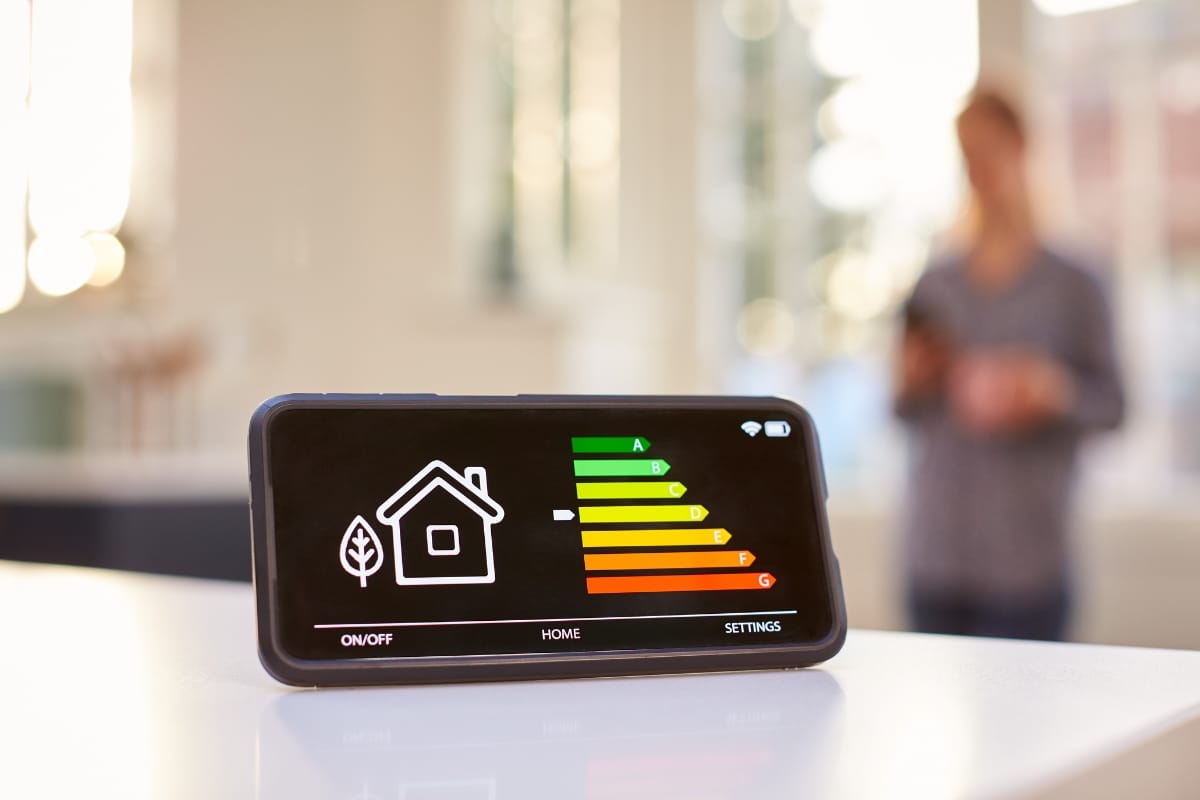
Routine HVAC maintenance is one of the most effective ways to keep energy costs down. When a system is clean and working as intended, it doesn’t need to work as hard to heat or cool your home. Simple tasks like removing dust from coils, checking refrigerant levels, and ensuring proper airflow help the system run more efficiently. Over time, this efficiency translates into less energy use and noticeable savings on your utility bills.
What Role Does SystemEfficiency Play in Reducing Energy Use?
System efficiency determines how much energy your HVAC unit uses to reach the desired indoor temperature. When all parts are clean, lubricated, and properly adjusted, the system can move air and transfer heat with less resistance. Dirty coils, for example, can trap heat and force the system to run longer. A fan motor that has to work against high air pressure in clogged ducts will also use more electricity. Maintenance helps avoid these issues by keeping components in good condition, so they don’t waste energy doing a job that should be simple.
How Can Preventative Maintenance Avoid Costly Emergency Repairs?
Many HVAC breakdowns are the result of small problems that were left unaddressed. A minor issue, like a slow refrigerant leak or a worn belt, might not stop the system from working right away, but over time it can lead to more serious damage. Preventative maintenance catches these early, allowing repairs to be made before they become emergencies. This approach avoids the high costs that come with urgent service calls and sudden equipment failures. It also helps extend the life of the system, since less strain means less wear over time.
Which HVAC Components Impact Energy Consumption Most?
Several parts of the HVAC system have a direct effect on energy use. The compressor is one of the most energy-intensive components and depends on the right refrigerant charge to operate efficiently. The blower fan must push air through the system, and if the air filters are clogged or the ducts are leaking, the fan will need to work harder than necessary. These issues not only increase energy use but can also cause uneven temperatures and discomfort inside the home. Thermostats also play a role. If they are miscalibrated, the system might run longer than needed, using more power than necessary.
Regular maintenance helps keep these components working within their designed parameters. When parts are inspected and adjusted routinely, the system can run more smoothly and with less energy. The result is a home that stays comfortable without wasting electricity or putting added strain on the equipment.
When Is the Best Time to Schedule Seasonal HVAC Maintenance?
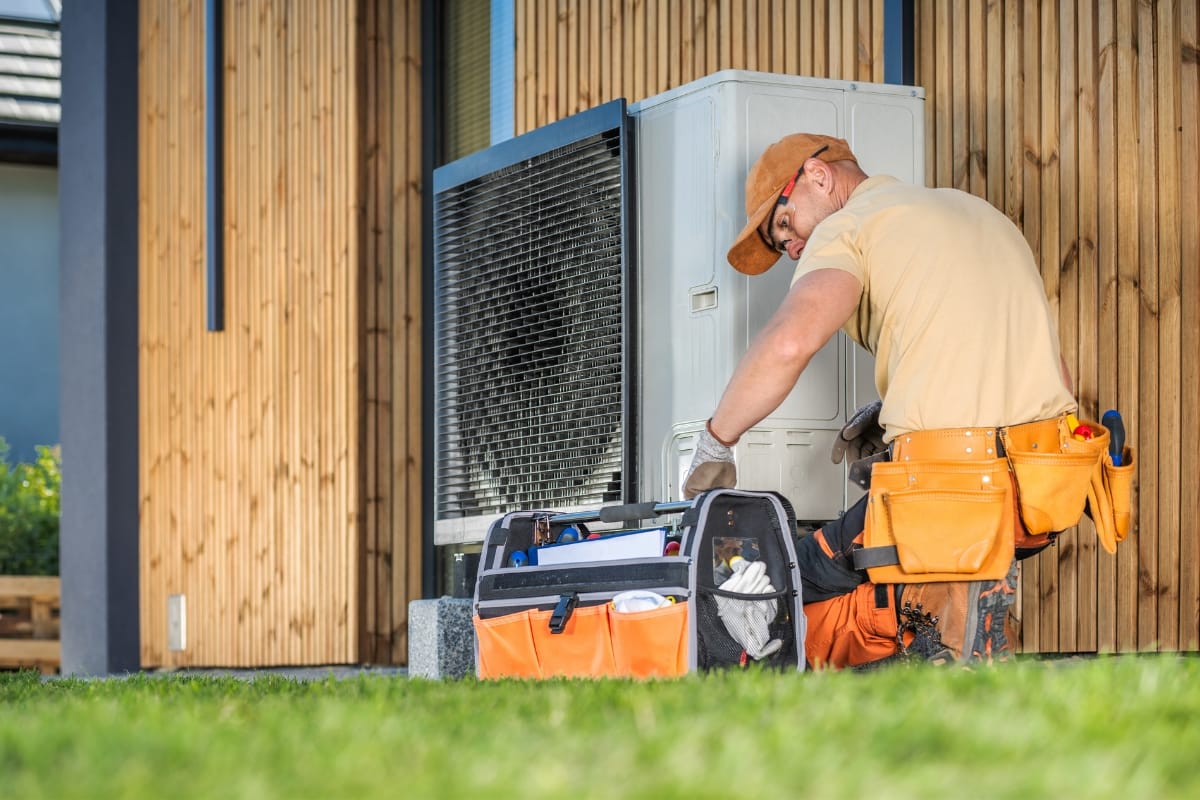
Seasonal HVAC maintenance is most effective when scheduled before your system is under heavy use. Preparing your air conditioner in the spring and your furnace in the fall allows technicians to identify and fix small issues before they turn into major problems. This approach ensures your system runs efficiently when you need it most, whether it’s keeping your home cool during the summer or warm in the winter.
Why Should You Prepare Your AC Before Summer?
Hot weather can put a strain on your air conditioning system, especially if it hasn’t been maintained recently. By scheduling service in the spring, you give yourself time to address any wear or damage that may have occurred over the previous year. Technicians will check refrigerant levels, clean condenser coils, inspect electrical connections, and confirm that key components are working as they should. This kind of early intervention reduces the chances of your AC breaking down during a heatwave and helps it run more quietly and efficiently throughout the season.
How Does FurnaceMaintenance Before Winter Prevent Breakdowns?
Your furnace also needs attention before cold weather sets in. Fall is the ideal time to make sure the system is clean, safe, and functioning properly. Dust and debris often collect in heating systems during the off-season. Without proper cleaning and inspection, this buildup can reduce efficiency or lead to malfunctions when the system is running full-time.
Maintenance before winter typically includes checking for gas leaks, inspecting the heat exchanger, verifying that the burners ignite properly, and cleaning out the combustion area. These steps help your furnace deliver consistent heat without overworking itself or cycling on and off unnecessarily. Regular upkeep can also extend the lifespan of key components and reduce the risk of unexpected breakdowns during freezing weather.
How Often Should Seasonal Maintenance Be Performed?
For most homes, HVAC systems should be serviced twice a year—once in the spring before cooling season begins, and again in the fall before the heating season starts. These visits are usually enough to keep things running smoothly, especially if your equipment is relatively new and your home isn’t exposed to extreme temperatures year-round. In areas with harsh weather or for older systems, additional checkups may be beneficial.
In addition to improving performance, regular maintenance can help lower your energy bills and extend the life of your system. Keeping up with service also ensures that you meet the terms of most manufacturer warranties. Skipping routine checks might save time in the short term, but it often leads to more expensive repairs later.
What Should You Expect From Professional HVAC Maintenance Services?
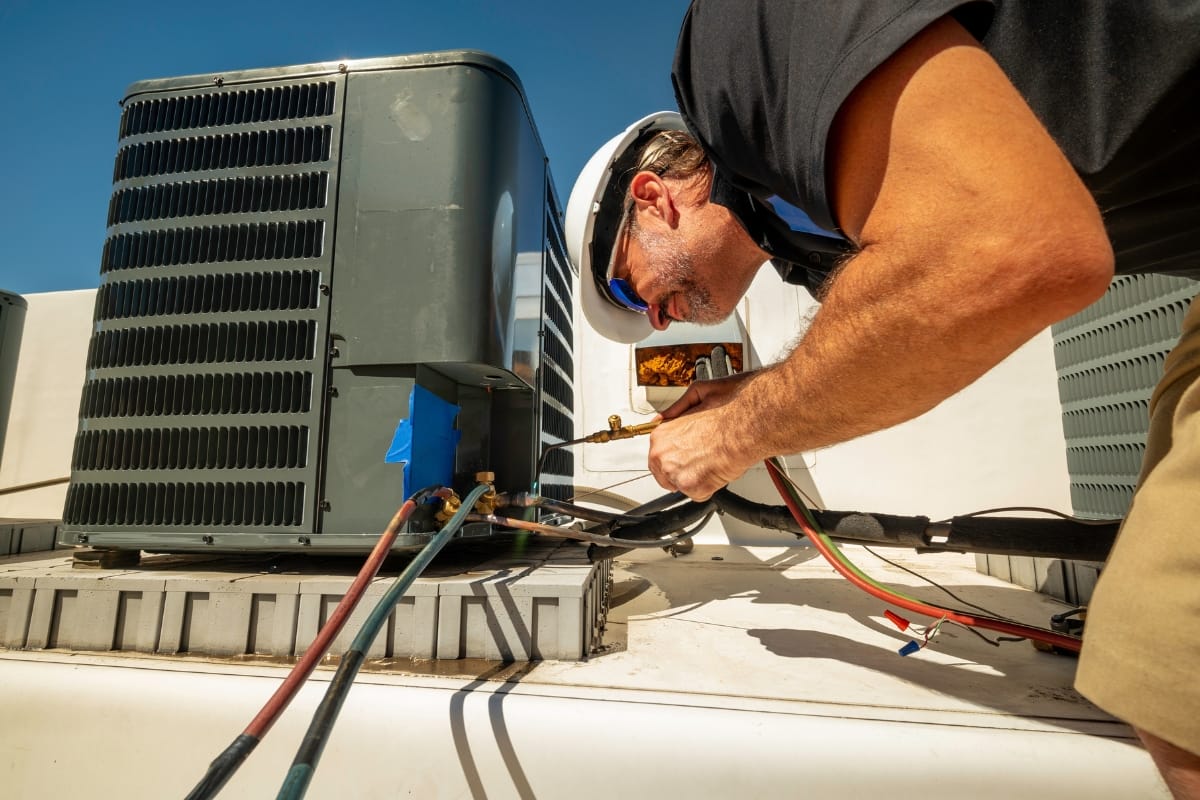
When you hire a professional for HVAC maintenance, you’re getting more than a quick tune-up. The process involves a thorough check of your heating and cooling system, including the thermostat, electrical components, ductwork, coils, filters, and other mechanical parts. The technician’s goal is to make sure the entire system is running efficiently and safely, and to catch any developing issues before they become more serious.
Inspections typically start with a review of the system’s overall performance. This includes testing airflow, checking temperature differentials, and listening for unusual noises. Visual inspections help spot wear or damage, while more advanced tools are used to assess things like refrigerant pressure, electrical load, and combustion safety. When something is off, the technician can recommend repairs or adjustments to keep the system working reliably.
How Do Certified Technicians Ensure Quality Maintenance?
A certified technician doesn’t just look at the obvious signs of trouble. They use diagnostic tools to measure how well your system is performing under normal conditions. Thermometers, voltmeters, and pressure gauges help identify problems like low refrigerant levels, electrical imbalances, or poor airflow. This data is compared against manufacturer specifications and past service history to guide the maintenance process.
In addition to identifying current issues, technicians look for signs of long-term wear. For example, they might notice a blower motor pulling more electricity than it should or a capacitor nearing the end of its life. Replacing worn components before they fail can prevent sudden breakdowns and extend the life of the entire system.
What Role Does a Satisfaction Guarantee Play?
A service guarantee gives you peace of mind that the job will be done correctly. If problems come up after the technician leaves, the company typically returns to address them without additional charges. This follow-up service shows that the provider is committed to doing quality work and is confident in the results. While not every company offers the same guarantee terms, many include coverage for parts and labor over a set period.
These types of policies also encourage clear communication. Knowing that a company stands behind its work builds trust and gives homeowners added reassurance that they’re making a smart investment.
How Does Ongoing Maintenance Extend Equipment Lifespan?
Regular professional maintenance can significantly increase the useful life of your HVAC system. Cleaning evaporator and condenser coils keeps heat exchange efficient, while inspecting belts, bearings, and electrical connections reduces the chance of unexpected failures. Keeping filters clean and motors running properly helps prevent the system from overworking.
Over time, these small efforts add up. Systems that are routinely maintained tend to experience fewer breakdowns, perform more consistently, and last longer than those that are only serviced when something goes wrong. Instead of facing expensive emergency repairs, you’re more likely to enjoy steady comfort and lower operating costs year after year.
How Can You Maximize Savings With Seasonal HVAC Maintenance?

Saving money on heating and cooling doesn’t always require major changes. A combination of scheduled professional service and simple upkeep can reduce energy bills and help avoid costly repairs. Homeowners who understand how to care for their HVAC systems year-round tend to spend less and get more consistent performance from their equipment.
Seasonal maintenance is designed to keep the system running efficiently. When everything is working the way it should, the system doesn’t have to work as hard to maintain a comfortable indoor temperature. That efficiency directly translates into lower monthly energy costs and less wear on key components.
What Simple Homeowner Tasks Complement Professional Maintenance?
While a technician handles detailed inspections and repairs, homeowners play a key role in day-to-day system performance. One of the most important tasks is replacing air filters regularly. Dirty filters restrict airflow, which forces the system to use more energy and increases the risk of a breakdown.
Other simple habits can make a difference as well. Keeping furniture or curtains from blocking air vents helps maintain even airflow. Clearing leaves, grass, or debris from around the outdoor condenser unit prevents overheating and improves ventilation. Using a programmable thermostat to reduce heating or cooling during times when no one is home also helps control costs. These small tasks, when done consistently, support the work done during professional tune-ups and extend the overall life of the system.
How Does Regular Maintenance Affect HVAC Warranty Validity?
Most HVAC manufacturers require proof of regular maintenance in order to honor a warranty. If a major component fails and there’s no service record, the warranty claim might be denied. That means homeowners could be responsible for paying out of pocket for repairs that otherwise might have been covered.
Keeping a simple log of service visits, filter replacements, and any repairs is often enough to maintain compliance. In addition to protecting against unexpected costs, this kind of record-keeping also helps homeowners stay on top of their maintenance schedule and spot any recurring issues before they become serious problems.
Are There Seasonal Maintenance Plans or Discounts Available?
Many companies offer maintenance plans that include two scheduled visits per year, typically in spring and fall. These plans are often more affordable than booking individual appointments and may include additional perks like priority scheduling or reduced fees on repairs. While prices and details vary, the goal is usually to keep systems operating efficiently while offering a predictable service routine at a better overall rate.
Some providers also run seasonal promotions during slower months to encourage early bookings. Taking advantage of these offers, combined with consistent upkeep at home, can lead to real savings over time without sacrificing comfort or performance. In the long run, planning ahead for seasonal maintenance tends to cost less than waiting until something breaks.
What Are Common Signs Your HVAC System Needs Immediate Maintenance?
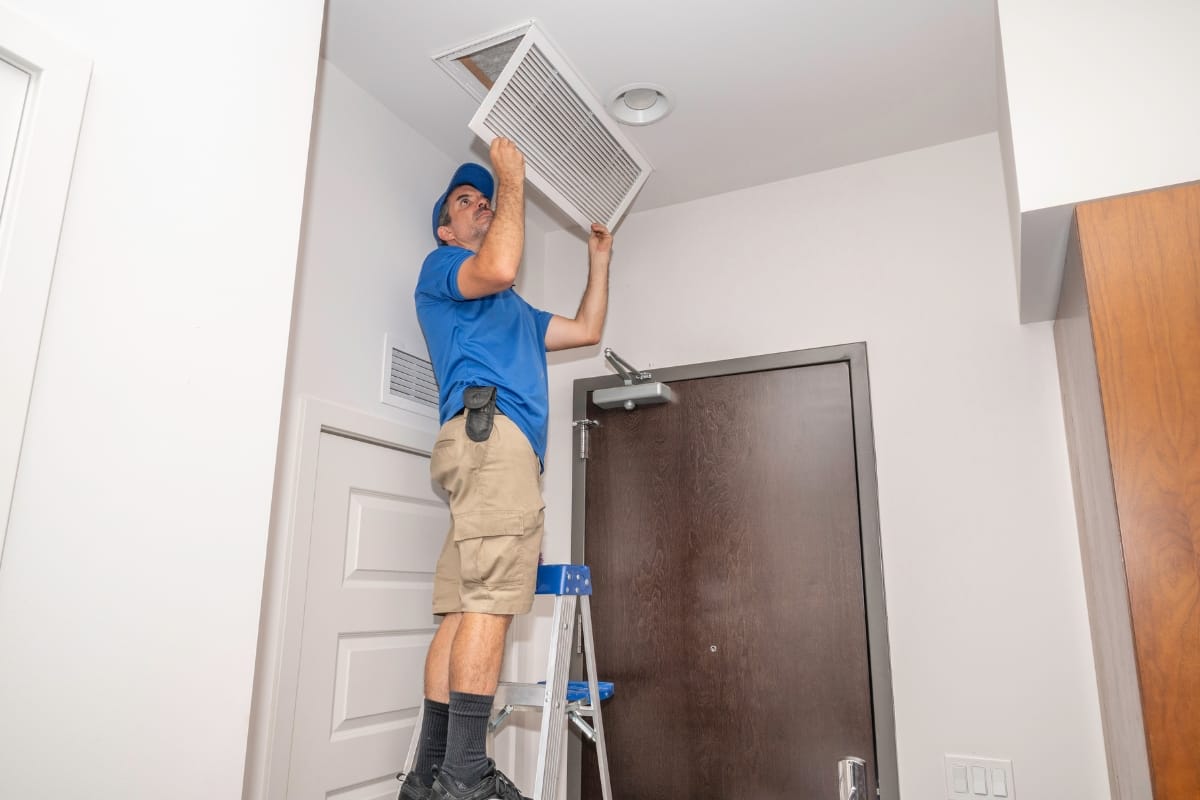
An HVAC system that’s struggling to perform usually gives off warning signs. These signs are important to notice because they often point to small issues that, if ignored, can lead to costly repairs or full system breakdowns. Whether it’s unusual sounds, strange odors, or inconsistent temperatures throughout your home, knowing what to look for can help prevent bigger problems down the line.
How Do Strange Noises or Odors Indicate System Issues?
If your HVAC system starts making noises that you haven’t heard before, it’s often a sign that something is off. Grinding or rattling can mean that parts have come loose or are beginning to wear out. High-pitched squeals might suggest a belt is slipping or a motor is under strain. These aren’t just annoyances—they’re early warnings that the system may be heading toward failure if the issue isn’t addressed.
Odors can be just as telling. A burning smell might mean an electrical component is overheating. A musty or damp smell could suggest mold growth somewhere in the ducts or near the evaporator coil. Neither should be ignored. Letting these issues linger can lead to system damage, poor indoor air quality, or, in more serious cases, safety concerns.
Why Is Uneven Heating or Cooling a Red Flag?
If some rooms in your home are too hot while others remain cold, your HVAC system might be having trouble distributing air properly. This could be the result of clogged filters, blocked or leaking ducts, or a failing blower motor. Sometimes, it’s a thermostat issue that keeps the system from responding accurately.
When a system struggles to maintain even temperatures, it has to work harder to try and meet the set conditions. That extra effort leads to more energy use and can shorten the life of the equipment. Addressing these imbalances early keeps your home comfortable and reduces long-term wear on the system.
When Should You Call for Emergency HVAC Service?
Not every issue can wait for a routine maintenance appointment. If your system stops working entirely during very hot or cold weather, you should take immediate action. A complete shutdown, especially in extreme temperatures, can put your household at risk, particularly for the elderly, young children, or those with health conditions.
Other situations that call for urgent attention include refrigerant leaks, which can affect both system performance and safety. If you notice a hissing sound or spot puddles near your system, those may be signs of a leak. Likewise, electrical problems—such as sparking or a persistent burning smell—should be taken seriously. These could pose fire risks and shouldn’t be ignored.
Responding quickly to these signs not only keeps your system working efficiently but can also help avoid serious damage or safety hazards. Early intervention is key to keeping costs down and comfort levels high.
Frequently Asked Questions
Q: How often should I have my HVAC systemserviced? A: It is recommended to service your HVAC system at least twice a year—once before the cooling season and once before the heating season—to address minor issues before they become major problems.
Q: What are the benefits of regular HVAC maintenance? A: Regular maintenance improves system efficiency, reduces energy bills, prevents unexpected breakdowns, maintains indoor air quality, prolongs system lifespan, and supports warranty validity.
Q: Can I perform any maintenancetasks myself? A: Homeowners can handle basic tasks like replacing air filters and cleaning around the outdoor unit. However, professional maintenance is essential for in-depth inspections, refrigerant checks, and electrical testing to ensure safe and effective operation.
Q: How do seasonal maintenanceplans work? A: Seasonal maintenance plans bundle biannual visits at discounted rates and typically include comprehensive inspections, cleaning, tune-ups, and priority scheduling, all designed to boost system efficiency and prolong its lifespan.
Q: What is the typical cost savings from regular HVAC maintenance? A: Regular maintenance can reduce energy consumption by up to 15%, potentially saving hundreds of dollars annually on utility bills while preventing expensive emergency repairs and premature system replacement.
Q: How do I know if my HVAC systemneeds emergency service? A: Warning signs such as strange noises, unpleasant odors, inconsistent room temperatures, or complete system shutdown during extreme weather indicate that immediate professional service is necessary.
Final Thoughts
Keeping up with seasonal HVAC maintenance isn’t just about comfort—it’s a smart investment that reduces energy bills, extends the life of your equipment, and helps you avoid costly mid-season breakdowns. With inAir Heating & Air’s comprehensive tune-ups and inspections, you’ll enjoy reliable performance year-round and peace of mind that your system is running at peak efficiency. Ready to lock in savings and prevent unexpected repairs? Give us a call at (770) 233-7777 or visit our website to fill out the HVAC request form today.




